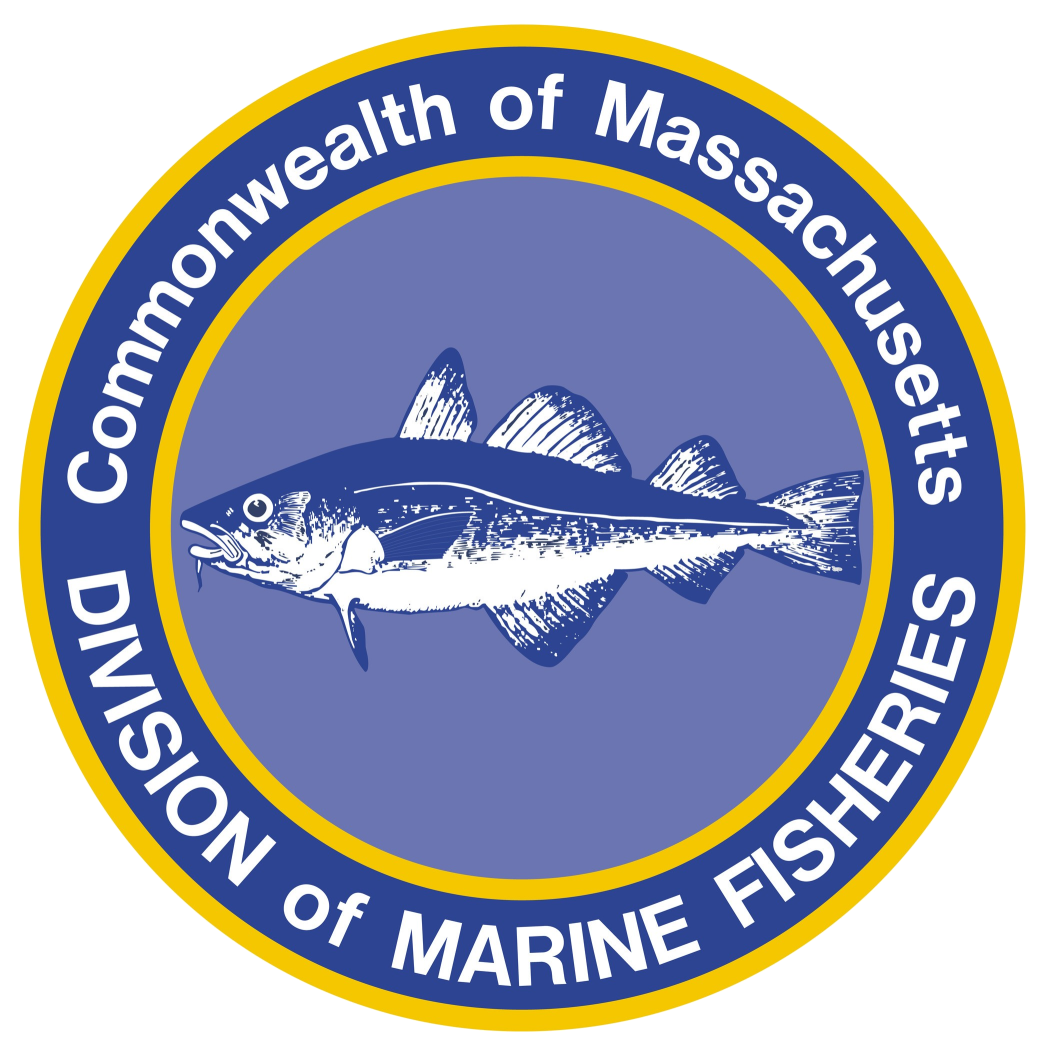- Division of Marine Fisheries
During the period of July 1, 2020, through December 31, 2020 the following regulatory changes were enacted by DMF after public hearings and Marine Fishery Advisory Commission approval, or by the Director under his declaratory and emergency authorities.
Black Sea Bass For-Hire Recreational Fishing Season (322 CMR 6.28). For 2020, DMF extended the recreational black sea bass fishing season for for-hire vessel operators through October 9; the season was previously scheduled to close after September 8. This action was taken through a Letter of Authorization and Statement of Permit Conditions. The extension was implemented to offset the impacts of the public health measures that prohibited for-hire fishing activity during the first seven days of the recreational black sea bass season. Based on past recreational harvest estimates, DMF projected that the for-hire fleet would take as many black sea bass during the period of September 9–October 9 as it would have during May 18–May 24 if not closed. This action was approved by the Atlantic States Marine Fisheries Commission in August 2020.
Closure of Cape Cod Canal to Commercial Striped Bass Fishing (322 CMR 6.07). DMF permanently implemented the closure of the Cape Cod Canal’s shoreline to commercial striped bass fishing that was enacted by emergency regulation earlier in the year. Anglers fishing along the Canal are now prohibited from retaining any striped bass measuring 35” in total length or greater or possessing more than one striped bass per person. These restrictions extend within 1,000 feet of the canal’s shoreline, except for commercial fishermen fishing on open commercial fishing days actively transporting striped bass lawfully caught in another location. This exemption covers the transiting of the Canal in possession of commercial striped bass, the landing of fish at Taylor’s Point or Sandwich Marina, and the trucking of fish across adjacent surface roads. The Canal is defined as extending from the northernmost point at President’s Road and the seawardmost point at the state pier at Massachusetts Maritime Academy on the west end to the seawardmost points of the jetties at the east end.
Gulf of Maine Cod For-Hire Recreational Fishing Season (322 CMR 6.03). DMF extended the for-hire recreational fishing season for Gulf of Maine cod during the fall of 2020; the season was scheduled to occur from September 15–September 30 but was extended through October 7. This action was taken through a Letter of Authorization and Statement of Permit Conditions. The extension was implemented to offset the impacts of the public health measures that prohibited for-hire fishing activity during the open springtime season (April 1–April 14) and mirrors a federal interim rule enacted by NOAA Fisheries in August 2020.
In-Season Adjustments to Commercial Fishing Limits for Quota Managed Species (322 CMR 6.41). DMF enacted several in-season adjustments to 2020 commercial fishing limits for quota managed species. These actions were implemented by Declaration of the Director and expire at year’s end. For striped bass, black sea bass, and summer flounder, they were designed to provide commercial fishermen with additional opportunity to harvest available quota and mitigate for lost access due to worsening fall weather. The action for horseshoe crab was intended to reduce their being discarded in the inshore trawl fishery for summer flounder.
- Striped Bass. Beginning on September 1, DMF added Tuesday as an open commercial fishing day, providing for three open fishing days per week (Monday–Wednesday) throughout the fall. This action also accommodated interest from certain commercial fishermen who sought to conduct night fishing activity over consecutive fishing days.
- Black Sea Bass. From August 31 through October 1, Monday and Wednesday were added as open commercial fishing days for the directed pot and hook & line fisheries, providing for five open fishing days per week (Sunday–Thursday). Effective October 2, the directed pot and hook & line fisheries went to having no closed fishing days, as Friday and Saturday were also added as open fishing days. Additionally, the daily trip limits for the directed pot and hook & line fisheries were increased by 25% on August 30, with the pot limit going from 400 pounds to 500 pounds and the hook & line limit going from 200 pounds to 250 pounds.
- Summer Flounder. For the period of August 23 through October 3, the commercial summer flounder trip limit for trawlers was increased from 400 pounds to 600 pounds. The trip limit for all gear types was increased to 1,000 pounds effective October 4, and to 2,000 pounds effective November 1 (through year’s end). From October 4 through December 31, Friday and Saturday were added as open fishing days, providing for seven open days per week.
- Horseshoe Crabs. DMF authorized trawlers to land horseshoe crabs seven days per week once closed fishing days in the summer flounder fishery were eliminated.
Summertime Summer Flounder Pilot Program (322 CMR 6.22). DMF renewed a seasonal pilot program begun in 2019 that allows trawlers participating in the summer flounder fishery during June 10–October 31 to possess and land two daily limits of summer flounder lawfully caught and retained over consecutive open fishing days. On July 22, the program was modified to similarly allow the landing of two consecutive daily trip limits of horseshoe crab and black sea bass. The program was suspended on October 4 when in-season adjustments to the summer flounder fishery limits went into place (see above).
Winter II Scup Limits (322 CMR 6.27). The Winter II (October 1–December 31) commercial scup possession and landing limit was set at 24,000 pounds. This matches the federal limit set for this period by NOAA Fisheries and thereby allows vessels fishing offshore to possess and land scup lawfully caught in the federal zone in Massachusetts.
